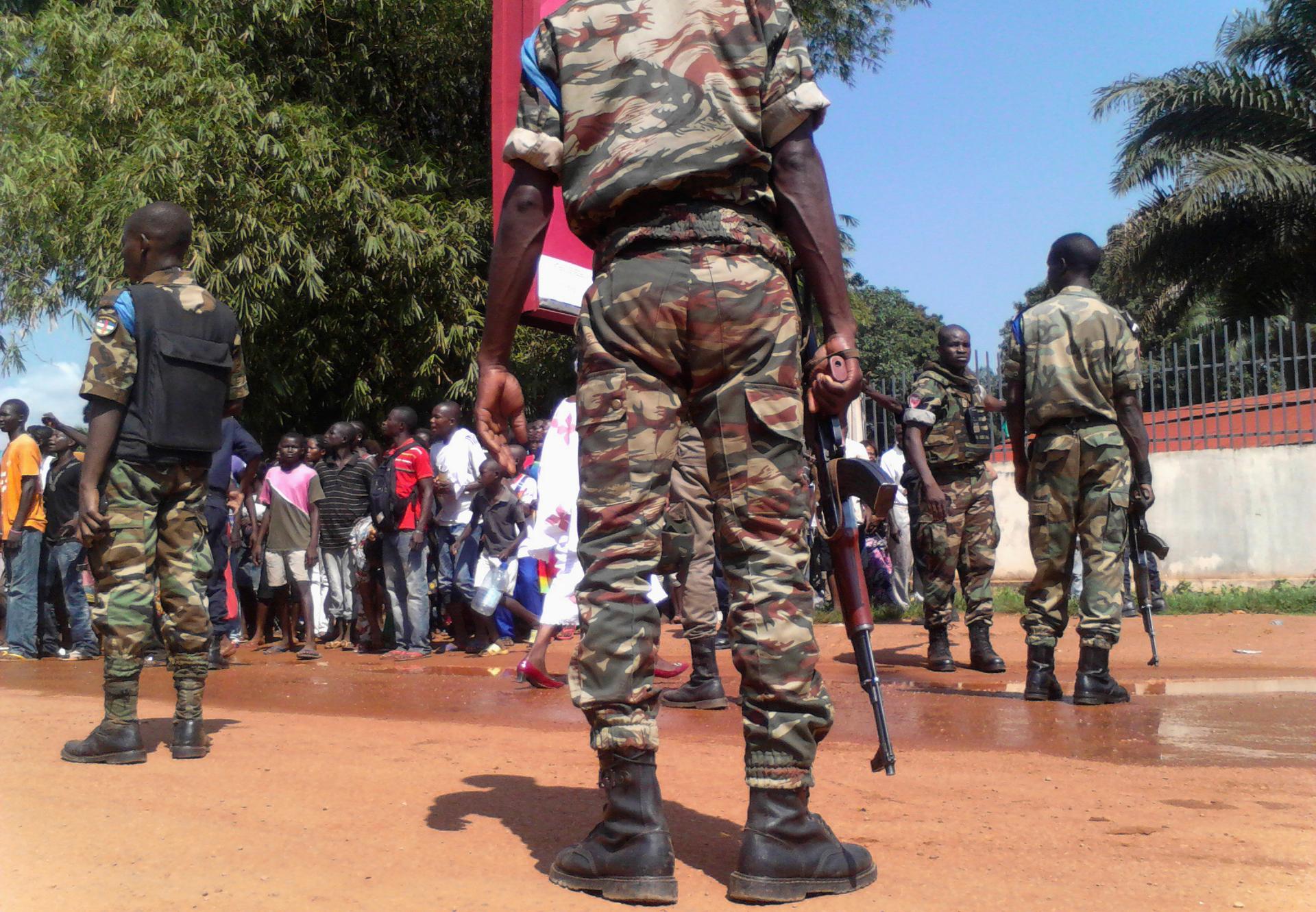‘The worst crisis most people have never heard of’ is in the Central African Republic
Central African security forces stand with their weapons during a demonstration for peace on a street in Bangui Nov. 22, 2013. The landlocked nation of 4.6 million people has slid into anarchy since the mostly Muslim Seleka fighters seized the capital Bangui in March.
When I lived in Africa in the 1980s, a book called "The Africans" by David Lamb was the guide I often turned to.
Lamb had great stories to tell. Also some pretty hideous ones, like his account of the Central African Republic.
Back in the 80's, it was still recovering from the rule of Jean-Bedel Bokassa. He'd crowned himself emperor and was said to practice cannibalism. Here's what Emperor Bokassa once told Lamb about his country's finances and its former colonial ruler:
"Everything around here is financed by the French government. We ask the French for money, we get it and waste it," he said.
Bokassa's rule ended in 1979 — when French paratroopers removed him.
Fast forward to today. Again, there's talk of French troops landing in the Central African Republic — the CAR, as it's called. This time, the aim is to prevent carnage.
The battle lines in the country seem to be drawn along both religious and ethnic lines. But the bottom line is this: no one seems to be in control in one of the poorest countries of the world. Rebel and government militias are violating — torturing, raping, executing — anyone who gets in their way. Some have referred to it as "the worst crisis most people have never heard of."
Tens of thousands of people have sought refuge in Father Frédéric Tonfio’s church, located northwest of the capital, Bangui.
“The population is absolutely terrorized,” Tonfio says. "All the world must know that there are inhuman acts here that are not normal and that those who stand by are all accomplices to this.”
Clearly, one church can't save a whole country. That’s why France — yet again — is considering military intervention in the CAR.
French foreign ministry spokesman Vincent Floreani says the country is out of control.
“People are talking of a situation which is on the verge of genocide,” he says. “The country could drift into sectarian violence between Christians and Muslims. And this is what we want to avoid.”
Floreani adds the CAR can't cope with the violence.
“You have a population of about five million people and only seven surgeons," he says. "Thousands of people are being killed. This is really a terrible situation."
Bob McCarthy, the emergency chief of UNICEF, is in the CAR. He says the impact of the fighting is deeply discouraging.
“Number one, there is no protection, so people are forced to live in the bush. They're living in extremely difficult conditions, many of them have wounds," he says. "The situation for children is bad; they don't have enough food and they're really fleeing for their lives.”
At this point, the Central African Republic has no real government to speak of. The allegiances of militias are hard to define. And many worry that the next phase could be violence on a mass scale.
